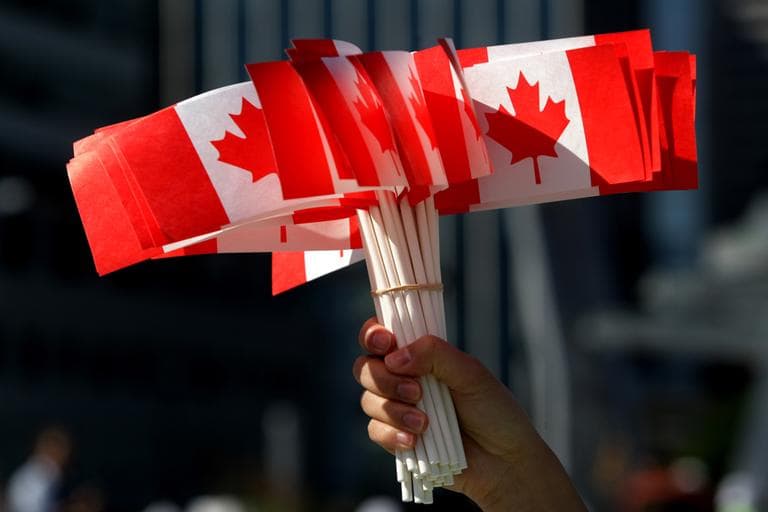Advertisement
O’ Canada, They’ve Got It Right

The presidential candidates appropriately suspended campaigning in the wake of the Aurora, Colo., killings. Instead, they made dignified statements about staying close to family members and appreciating the fragility of life. Last weekend's reprieve from the endless attacks and counter attacks of modern politics was a pause that was refreshing. It was so refreshing it brings to mind the example from our democratic neighbor to the north, Canada.
Less is more. By law, the minimum length of a campaign in Canada is 36 days; the longest any Canadian election has lasted was 74 days, in 1926. Most elections take closer to 36 days than 74. Imagine a campaign here that couldn’t begin until Oct. 1, 2012!
A different way. I know, I know, Canadians have a parliamentary system and don’t elect their prime minister in the same quaint way we choose a president, by the Electoral College; also the dates of elections are called by the leader of the ruling party, at times most convenient to that party. Because of the climate, it’s considered bad form to call an election during the winter months.
No endless campaign. There’s no reason for U.S. campaigns to begin two, three or four years before the general election. Mitt Romney never stopped running after he lost his party’s nomination in 2008. It’s no wonder it takes access to hundreds of millions of dollars to run for president. Not so in Canada.
Cheaper campaigns. If we adopted a Canadian-style season, the biggest benefit would be far, far cheaper campaigns. Canada’s last national election was limited by law to $21 million (Canadian) per party in spending. Both American campaigns spent a total of $19 million last week, according to the Campaign Media Analysis Group, which tracks advertising purchases. And that doesn’t count super PACs, ad hoc and tax exempt “social welfare” groups, and other third parties whose spending is entirely negative and whose donors are hidden, unless they choose to brag.
Small money. In Canada, no one can contribute more than $1,200 (Canadian) — no individual, no party, no interest group or association can exceed this limit. Under such a system, casino billionaire Sheldon Adelson and the Koch brothers, as well as labor unions and George Soros, would all be on equal financial footing in campaigns with, say, a nurse or a carpenter.
Free time. Canadian law requires broadcasters to make 6.5 hours of advertising time available for parties with a mix of prime time and other parts of the day during the campaign season — not before. Even public broadcasting outlets have to accept political ads. In a big loophole, cable outlets do not have to provide such time.
Less time for fat cats. Incumbent members of Congress spend an estimated 30 to 70 percent of their time on fundraising. When the election is near and the race is close, they’ll spend nearly all of their time asking wealthy strangers for money.
Just do the job. The incumbent president would not have to spend up to half of every day performing political chores, like asking for support, giving speeches in barns or factories, going to closed-door fundraising events attended by the wealthy, famous and well-connected. That would give the president the time to do the most demanding job in the world, next to managing the Red Sox.
More substance. There would be no limit on what a candidate could talk about. But, if you only have a month or two to make your case, would you waste it on a ludicrous call for a birth certificate or claiming the trees in a certain state are “the right height?”
No more Pony Express. The current system served the country well in its formative years when it might take a week to a month for political news to go from Washington D.C. to California. Today, anyone can know anything about anyone, anywhere by tapping a few keys on a digital device. We’ve outgrown the Pony Express. Less campaigning would force us to pay closer attention during the brief election season and that, plus much cheaper campaigns, would be very good for the country.
This program aired on July 27, 2012. The audio for this program is not available.